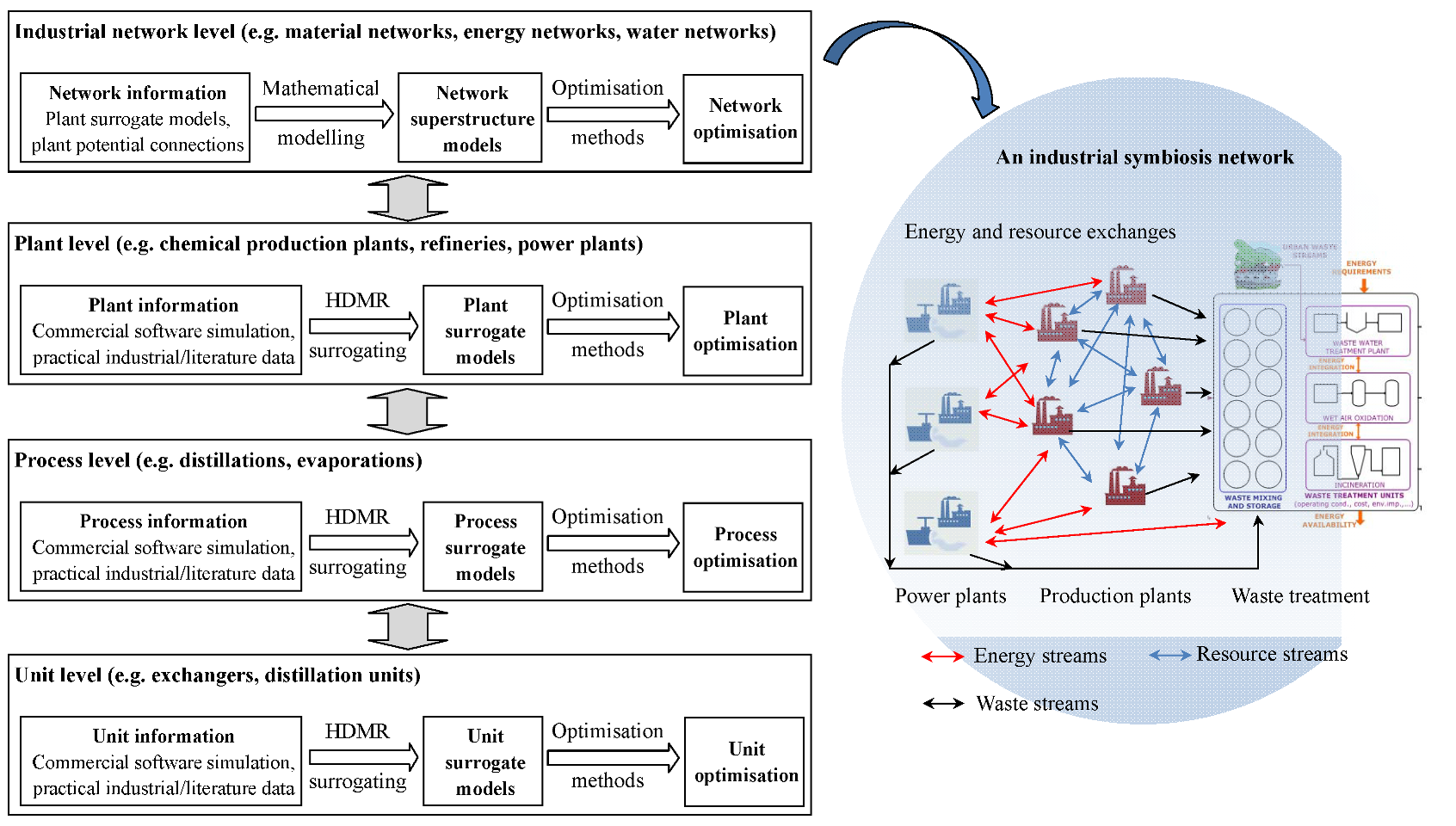Design technologies for eco-industrial parks: from unit operations to processes, plants and industrial networks
- A four-level modelling framework is built for EIP research
- Advanced mathematical modelling approaches are proposed for each level problem
- Efficient optimisation methodologies are developed for solving EIP problems
- Industrial symbiotic are presented with combining material, water and energy networks
 This paper proposes a series of systematic approaches for multi-level modelling and optimisation in EIPs. It is the first work to implement innovative technologies to improve energy and resource efficiency throughout the whole EIP system. The novelties of this work include, (1) building a four-level modelling framework (from unit level to process level, plant level and industrial network level) for EIP research, (2) applying advanced mathematical modelling approaches to describe each level operation, (3) developing efficient methodologies for solving optimisation problems at different EIP levels, (4) considering symbiotic relations among the three networks (material, water and energy networks) at the top EIP level with the boundary conditions of economic, social and legal requirements. For methodology demonstration, two cases at process level and industrial network level respectively are tested and solved with the developed modelling and optimisation strategies. Finally, challenges and applications in future EIP research are also discussed, including data collection, the extension of the current networks to EIPs with the combination of material exchanges, energy systems and wastewater treatment networks, and the feasibility of the proposed methodologies for EIP optimisation when more complex aspects are taken into account. The system presented in the paper is expected to share services, utility, and product resources among industrial plants to add value, reduce costs, improve environment, and consequently achieve sustainable development in a symbiosis community.
This paper proposes a series of systematic approaches for multi-level modelling and optimisation in EIPs. It is the first work to implement innovative technologies to improve energy and resource efficiency throughout the whole EIP system. The novelties of this work include, (1) building a four-level modelling framework (from unit level to process level, plant level and industrial network level) for EIP research, (2) applying advanced mathematical modelling approaches to describe each level operation, (3) developing efficient methodologies for solving optimisation problems at different EIP levels, (4) considering symbiotic relations among the three networks (material, water and energy networks) at the top EIP level with the boundary conditions of economic, social and legal requirements. For methodology demonstration, two cases at process level and industrial network level respectively are tested and solved with the developed modelling and optimisation strategies. Finally, challenges and applications in future EIP research are also discussed, including data collection, the extension of the current networks to EIPs with the combination of material exchanges, energy systems and wastewater treatment networks, and the feasibility of the proposed methodologies for EIP optimisation when more complex aspects are taken into account. The system presented in the paper is expected to share services, utility, and product resources among industrial plants to add value, reduce costs, improve environment, and consequently achieve sustainable development in a symbiosis community.
- This paper draws from preprint 164: Design technologies for eco-industrial parks: from unit operations to processes, plants and industrial networks
- Access the article at the publisher: DOI: 10.1016/j.apenergy.2016.05.019



